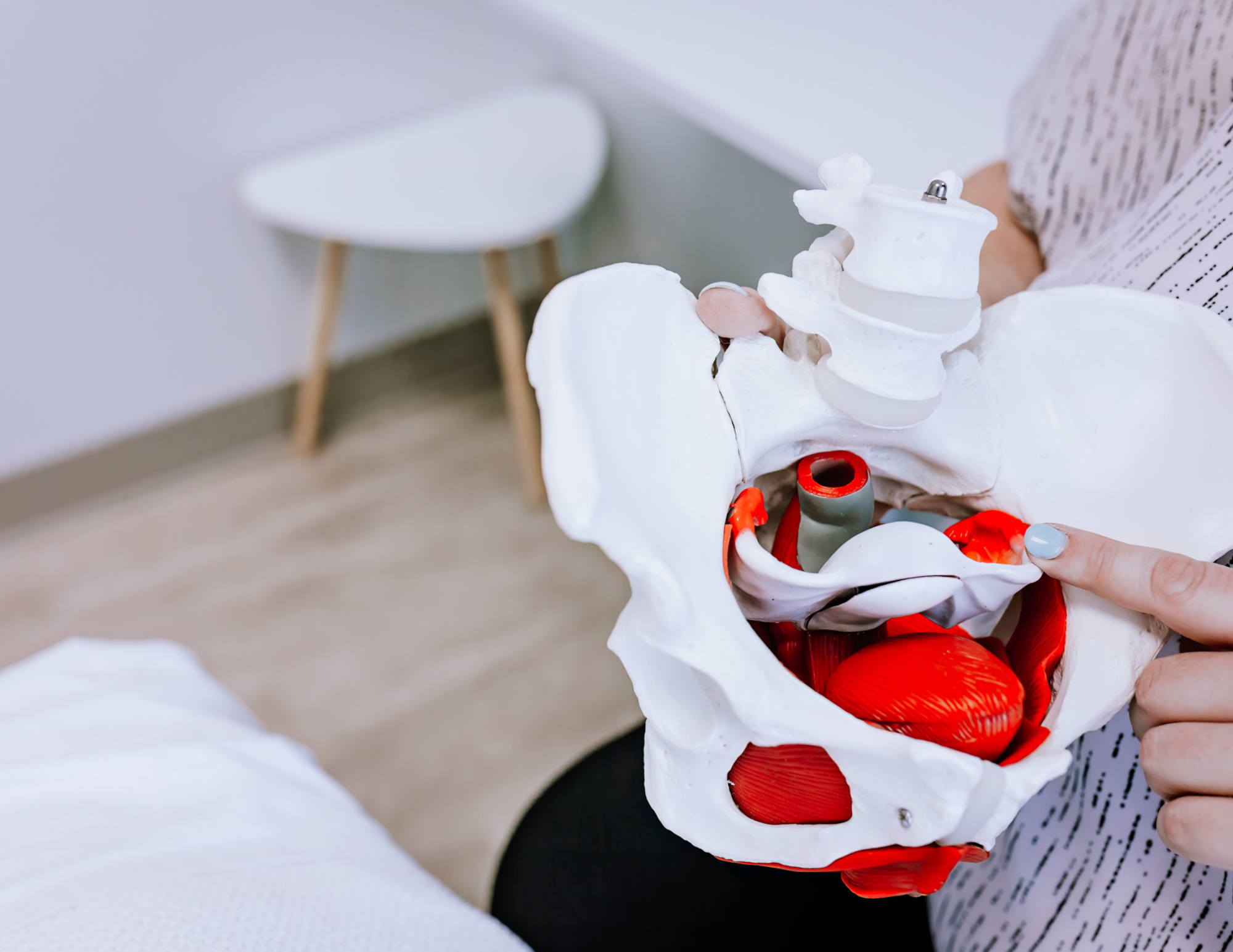.png)
Key Nutrients you need for Fertility and Pregnancy
It is quite well known that nutrition in pregnancy plays an important role for a baby’s development inside and outside of the womb. But did you know that there is increasing evidence that shows that nutrition before pregnancy, even up to 3 years before conception, could have an impact on the future development of your child?
Below you will find more information about the importance of some key nutrients for conception, pregnancy and early child development.
Iron aids in transporting oxygen throughout the body. During pregnancy, a person's blood volume increases significantly and there is an increased demand for iron from the growing fetus. Being iron deficient in pregnancy or for the first 6 months of a baby’s life can lead to neurological effects. Pregnant people with iron-deficiency anemia can also be at an increased risk for preterm labor, low birth weight and more.
You can find iron in: meat, poultry, fish, and seafood which have higher bioavailability as compared to vegetarian sources. When having non-heme iron foods such as eggs, legumes, tofu, nuts, seeds and grains, it is best to combine with foods high in vitamin C to aid with absorption.
Calcium is very important for a baby's bone and tooth development and most of the transfer of calcium to the baby happens in the 3rd trimester. Calcium also plays a critical role in regulating blood pressure, and ensuring adequate calcium intake may reduce the risk of preeclampsia. This mineral also helps the pregnant person’s body through the maintenance of the skeleton and smooth muscle contractions.
You can find calcium in: dairy foods (including milk, yogurt, cheese), and fortified non-dairy alternatives; as well as smaller amounts in almond butter, nuts, tofu, canned fish (with bones) and dark green vegetables.
Vitamin D helps calcium to support the development of the fetal skeleton and tooth enamel. There is also new research showing a role for vitamin D in the development of the immune system. Researchers are also seeing how Vitamin D can aid in cases of recurrent miscarriage. Deficiency in this vitamin during pregnancy is linked to certain complications including gestational diabetes, preeclampsia, preterm birth, low birth weight, asthma and more.
You can find vitamin D in: cow’s milk, or fortified, plant-based beverages. Prenatal multivitamins also usually contain between 400 -1,000 IU of vitamin D. Determining adequate supplementation of vitamin D is best guided by a lab test result through your physician or Naturopathic Doctor.
Iodine is essential for the production of thyroid hormones, which regulate metabolic processes, skeletal development and nervous system development in the fetus. Demand for this trace mineral increases significantly in pregnancy. Iodine deficiency in pregnancy carries several risks for the baby including miscarriage, still birth, impaired development and more.
Iodine can be found in: iodized salt, freshwater fish, eggs, and non-organic dairy.
Choline is very important for the development of cognitive abilities, learning and memory as the baby grows in the womb, and in the early years of life. A deficiency in choline could result in lifelong changes in the structure and function of the brain.
Choline can be found in: eggs, beef, chicken, fish, and dairy, cruciferous vegetables, leafy greens, beans, nuts and seeds. Some seeds and nuts rich in choline include flax seeds, pumpkin seeds, and cashews. Even though a variety of food sources exist, many pregnant people don’t get enough choline, and it is not standard in all prenatal vitamins.
Folate, also known as vitamin B9, is vital for neural tube development in the fetus, a process that takes place within the first 28 days of conception. Supplementing with folate 3 months prior to pregnancy is important, as it can decrease the risk of neural tube defects by 70%. Folate can also decrease the risk of several other issues such as miscarriage, stillbirth, preeclampsia and more.
You can find folate in: legumes, leafy green vegetables, broccoli, asparagus and avocado. Grains and cereals are fortified with folic acid. Prenatal vitamins typically contain 800 mcg – 1 mg of folate in a daily dose.
Omega-3 fatty acids EPA and DHA are beneficial in pregnancy. DHA moves across the placenta to support the baby, particularly during the third trimester and is essential for cell membranes and retina. The benefits of supplementation with Omega 3’s during pregnancy include reducing preterm delivery, and reducing the risk of eczema, allergies and asthma.
EPA and DHA can be found in: fish and shellfish. Be sure to choose fish that are low in mercury such as salmon, herring, Atlantic mackerel, sardines and rainbow trout. Although several plant sources contain omega-3s, such as walnuts, flaxseed, canola and soybean oils, they contain ALA, which is poorly converted to EPA and DHA.
Given the importance of high-quality nutrition during the preconception period as well as throughout pregnancy, working with a prenatal-focused Naturopathic Doctor or Holistic Nutritionist is important to provide guidance to anyone on their fertility or pregnancy journey.
Book a consultation with our Naturopathic Doctor to learn more!
Source: https://ndnr.com/endocrinology/preconception-and-pregnancy-a-nutritional-guide-for-clinicians/
For more detailed information, please read the above source written by Rooted Family Wellness Centre’s Naturopathic Doctor, Erica Nikiforuk.

.png)

